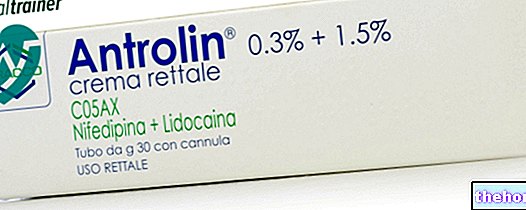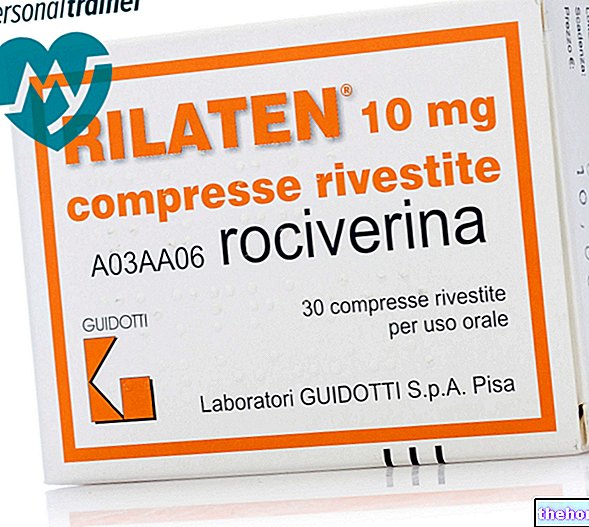Active ingredients: Ribosomal fractions consisting of bacterial ribosomes and Membrane fractions of the species Klebsiella pneumoniae, Streptococcus pneumoniae, Streptococcus pyogenes, Haemophilus influenzae
BIOMUNIL Tablets
BIOMUNIL Granulate for suspensions
Why is Biomunil used? What is it for?
PHARMACOTHERAPEUTIC CATEGORY
Bacterial vaccines.
THERAPEUTIC INDICATIONS
Prophylaxis of recurrent bacterial infections of the upper respiratory tract in children with a number of episodes higher than expected for age. BIOMUNIL can help reduce the number and intensity of infectious episodes.
Contraindications When Biomunil should not be used
Hypersensitivity to the active substance or to any of the excipients.
The use of the preparation in patients with autoimmune diseases is contraindicated.
Precautions for use What you need to know before taking Biomunil
Since no data are available from studies in pregnant women, it is preferable to avoid the use of BIOMUNIL in pregnant and lactating women (see Pregnancy and Lactation).
In subjects in whom hyperreactivity may be suspected, it is advisable to adopt a type of treatment with progressively increasing doses.
Interactions Which drugs or foods can modify the effect of Biomunil
Tell your doctor or pharmacist if you have recently taken any other medicines, even those without a prescription.
No interaction studies have been performed.
Warnings It is important to know that:
Take special care with BIOMUNIL:
- if you develop fever (≥ 39 ° C) of unexplained origin after using this drug, stop treatment and consult your doctor as soon as possible;
- if you have an allergy to this drug stop the treatment;
- if you suffer from asthma. Asthma attacks caused by the administration of medicinal products with bacterial extracts that stimulate the immune system have been described in asthmatic patients. If you develop asthma attacks, stop the treatment and do not repeat it;
- you should not use this drug if you have an acute intestinal infection;
Pregnancy and breastfeeding
Ask your doctor or pharmacist for advice before taking any medicine.
Since there are no studies related to the use of BIOMUNIL during pregnancy and breastfeeding, you should avoid taking this medicine during these periods.
Effects on ability to drive and use machines
BIOMUNIL does not affect the ability to drive or use machines.
Important information about some of the ingredients:
BIOMUNIL tablets contain sorbitol. If you have been told by your doctor that you have an intolerance to some sugars, contact your doctor before taking this medicinal product. BIOMUNIL granules for suspension contains mannitol. It may have a mild laxative effect.
Dosage and method of use How to use Biomunil: Dosage
Dosage
BIOMUNIL granules for oral suspension can be administered to children from 2 years of age.
BIOMUNIL tablets are reserved for children over 6 years of age.
Dosage:
1st month:
1 tablet or sachet in the morning on an empty stomach for 4 consecutive days a week for 3 consecutive weeks.
From the 2nd month:
1 tablet or sachet in the morning on an empty stomach for 4 consecutive days per month for the next 5 months.
Method of administration
Dissolve the contents of the sachet in half a glass of water. The oral suspension should be drunk immediately.
Overdose What to do if you have taken too much Biomunil
No cases of overdose have been reported
In case of accidental ingestion / intake of an excessive dose of BIOMUNIL, notify your doctor immediately or contact the nearest hospital.
If you have any questions about the use of BIOMUNIL, ask your doctor or pharmacist.
Side Effects What are the side effects of Biomunil
Like all medicines, BIOMUNIL can cause side effects, although not everybody gets them.
The table below shows the adverse reactions observed in nine clinical trials including a total of 1,231 patients treated with oral BIOMUNIL, for which the causality assessment was "not excluded" and in spontaneous reporting.
Adverse reactions are listed according to MedDRA system organ class and are defined below as: very common (≥ 1/10), common (≥ 1/100 to <1/10), uncommon (≥ 1 / 1,000 , <1/100), rare (≥ 1 / 10,000, <1 / 1,000), very rare (<1 / 10,000) or not known (cannot be estimated from the available data).
No adverse reactions were found to be of "very rare", "rare", or "very common" frequency and therefore these frequencies are not shown in the table.
Reporting of side effects
If you get any side effects, including any possible side effects not listed in this leaflet, contact your doctor or pharmacist. Undesirable effects can also be reported directly through the national reporting system at "www.agenziafarmaco.gov.it/it/responsabili". By reporting side effects you can help provide more information on the safety of this medicine.
Expiry and Retention
Expiry: see the expiry date indicated on the package.
The expiry date refers to the product in intact packaging, correctly stored.
Warning: do not use the medicine after the expiry date indicated on the package.
Tablets: Store at a temperature not exceeding 30 ° C.
Store in the original packaging.
Medicines should not be disposed of via wastewater or household waste. Ask your pharmacist how to dispose of medicines you no longer use. This will help protect the environment.
Keep this medicine out of the sight and reach of children.
Composition and pharmaceutical form
COMPOSITION
Each tablet or each sachet of granules for oral suspension contains:
Active ingredients: Ribosomal fractions of:
Klebsiella pneumoniae 3.5 parts
Streptococcus pneumoniae 3.0 parts
Streptococcus pyogenes (group A) 3.0 parts
Haemophilus influenzae 0.5 parts
Membrane fractions of
Klebsiella pneumoniae 15 parts
for a lyophilisate equal to 0.525 mg of ribosomal RNA
List of excipients
Tablets:
Colloidal silica 1.5 mg
Magnesium stearate 6 mg
Sorbitol to taste to 294 mg
Sachets of granules for oral suspension:
polyvinylpyrrolidone 10 mg
mannitol 488.12 mg
PHARMACEUTICAL FORM AND CONTENT
12 or 20 tablets for oral use in a lithographed cardboard box
12 or 20 sachets of granules for oral suspension in a lithographed cardboard box
Not all pack sizes may be marketed
Source Package Leaflet: AIFA (Italian Medicines Agency). Content published in January 2016. The information present may not be up-to-date.
To have access to the most up-to-date version, it is advisable to access the AIFA (Italian Medicines Agency) website. Disclaimer and useful information.
01.0 NAME OF THE MEDICINAL PRODUCT
BIOMUNIL
02.0 QUALITATIVE AND QUANTITATIVE COMPOSITION
BIOMUNIL tablets
Active principles:
Ribosomal fractions consisting of bacterial ribosomes in the following proportions:
Klebsiella pneumoniae 3.5 parts
Streptococcus pneumoniae 3.0 parts
Streptococcus pyogenes (group A) 3.0 parts
Haemophilus influenzae 0.5 parts
Membrane fractions from Klebsiella pneumoniae 15 parts
for a lyophilisate equal to 0.525 mg of ribosomal RNA
Excipients with known effects: sorbitol.
BIOMUNIL granules for oral suspension
Active principles:
Ribosomal fractions consisting of bacterial ribosomes in the following proportions:
Klebsiella pneumoniae 3.5 parts
Streptococcus pneumoniae 3.0 parts
Streptococcus pyogenes (group A) 3.0 parts
Haemophilus influenzae 0.5 parts
Membrane fractions from Klebsiella pneumoniae 15 parts
for a lyophilisate equal to 0.525 mg of ribosomal RNA
For the full list of excipients, see section 6.1
03.0 PHARMACEUTICAL FORM
Tablets, for oral use.
Granules for oral suspension.
04.0 CLINICAL INFORMATION
04.1 Therapeutic indications
Prophylaxis of recurrent bacterial infections of the upper respiratory tract in children with a number of episodes higher than expected for age.
BIOMUNIL can help reduce the number and intensity of infectious episodes.
04.2 Posology and method of administration
BIOMUNIL granules for oral suspension can be administered to children from 2 years of age.
BIOMUNIL tablets are reserved for children over 6 years of age.
Dosage:
1st month:
1 tablet or sachet in the morning on an empty stomach for 4 consecutive days a week for 3 consecutive weeks.
From the 2nd month:
1 tablet or sachet in the morning on an empty stomach for 4 consecutive days per month for the next 5 months.
Dissolve the contents of the sachet in half a glass of water.
04.3 Contraindications
Hypersensitivity to the active substance or to any of the excipients of the vaccine listed in section 6.1.
Autoimmune Diseases.
Acute intestinal infections.
04.4 Special warnings and appropriate precautions for use
In subjects in whom hyperreactivity may be suspected, it is advisable to adopt a type of treatment with progressively increasing doses.
Treatment should be stopped in case of fever, particularly at the start of treatment.
The patient must be informed of the possibility as a rare undesirable event of elevated fever above 39 ° C, isolated and without known cause and the type of fever must be differentiated from the fever that arises as a result of the original pathology, on the basis of the laryngeal, nasal conditions. or otological; in which case the treatment must be suspended and not resumed.
Concomitant intake of another immunostimulant should be avoided.
In some cases the onset of asthma attacks has been observed in predisposed patients after taking drugs containing bacterial extracts. In this case, BIOMUNIL should not be taken further.
In case of hypersensitivity reactions, treatment should be stopped immediately and not restarted.
BIOMUNIL is not recommended during pregnancy. The drug should be administered only in case of real need under the direct supervision of the physician (see section 4.6).
Important information about some of the ingredients
The medicine contains sorbitol, patients with rare hereditary problems of fructose intolerance should not take this medicine.
04.5 Interactions with other medicinal products and other forms of interaction
No interaction studies have been performed. An interval of 4 weeks is recommended between the end of treatment with BIOMUNIL and the start of administration of a vaccine. The immune response can be inhibited in subjects with congenital or acquired immunodeficiency, on immunosuppressive therapy or with corticosteroids.
04.6 Pregnancy and lactation
There are no data on the use of BIOMUNIL in pregnant women.
Animal studies do not indicate direct or indirect harmful effects with respect to reproductive toxicity.
However, as a precautionary measure, the use of BIOMUNIL during pregnancy and breastfeeding should be avoided.
04.7 Effects on ability to drive and use machines
BIOMUNIL does not affect the ability to drive or use machines.
04.8 Undesirable effects
The table below shows the adverse reactions observed in nine clinical trials including a total of 1,231 patients treated with BIOMUNIL orally, for which the causality assessment was "not excluded" and in spontaneous reporting.
Adverse reactions are listed according to the MedDRA System Organ Class and are defined below as:
very common (≥ 1/10), common (≥ 1/100,
No adverse reactions were found to be of "very rare", "rare", or "very common" frequency and therefore these frequencies are not shown in the table.
Reporting of suspected adverse reactions
Reporting of suspected adverse reactions occurring after authorization of the medicinal product is important as it allows continuous monitoring of the benefit / risk balance of the medicinal product. Healthcare professionals are asked to report any suspected adverse reactions via the national reporting system. "address http://www.agenziafarmaco.gov.it/it/responsabili
04.9 Overdose
No cases of overdose have been reported.
05.0 PHARMACOLOGICAL PROPERTIES
05.1 Pharmacodynamic properties
Pharmacotherapeutic group: bacterial vaccines
ATC code: J07AX
BIOMUNIL contributes to the development of non-specific and specific immune responses, through an enhancement of bacterial clearance and a stimulation of antiviral responses.
The immunogenic and immunomodulatory properties of BIOMUNIL have been established in animal and human studies, indicating that BIOMUNIL can cross the intestinal mucosa. This was confirmed using a model. in-vitro which reproduced the intestinal epithelium.
The membrane fraction and ribosomal fractions of K pneumoniae, a Gram negative bacterium, have been shown in in vitro studies to interact with innate immunity cell receptors (TLRs), inducing activation of NK cells, with production of defensins, increased function of neutrophils (adhesion and migration), activation of the monocyte-macrophage system, chemotactic activity on T lymphocytes.
The study of ribosomes by biochemical characterization showed the presence on ribosomes of antigenic epitopes of the bacterial membrane of Klebsiella pneumoniae. Thus ribosomes act as antigenic vectors, inducing specific antibody-secreting cells in the blood and mucous membranes that locally produce specific antibodies.
05.2 Pharmacokinetic properties
BIOMUNIL is bioavailable and reaches Peyer's plaques for the stimulation of immunocompetent cells.
Kinetic studies in rats and dogs have shown only a modest absorption of the macromolecules constituting BIOMUNIL administered intragastrically.
After 6 hours, plasma levels of the order of 1-2% of the administered dose, liver levels of 0.25% and intestinal levels of 0.08% were detected.
Urinary excretion was 33% after 72 hours.
05.3 Preclinical safety data
Effects in non-clinical studies were observed only at exposure levels considered sufficiently above the maximum human exposure, indicating little relevance for clinical use.
Acute toxicity is extremely low; no deaths or signs of toxicity were observed with the tablet formulation, although single doses exceeding 3000 times the human dose were administered; with the granulate formulation a LD50 was determined in mice and rats, equal to about 2500 times the human dose. Chronic toxicity was assessed after repeated administration in both rats and dogs: no signs of toxicity or changes in development, normal behavior and weight gain were found in any animal; haematological and biochemical parameters in treated animals and the histological findings were consistently within normal limits. Possible embryotoxic and / or teratogenic effects were sought in different animal species: mice, rats and rabbits. No negative effects on fecundity, on the percentage of placento-fetal reabsorption were highlighted. nor abnormalities in fetuses or newborns on microscopic examination of the viscera and skeleton.
06.0 PHARMACEUTICAL INFORMATION
06.1 Excipients
Tablets:
Colloidal silica 1.5 mg
Magnesium stearate 6 mg
Sorbitol to taste to 294 mg
Sachets of granules for oral suspension:
Polyvinylpyrrolidone 10 mg
Mannitol 488.12 mg
06.2 Incompatibility
Not relevant
06.3 Period of validity
Tablets: 3 years
Granules for oral suspension: 3 years
06.4 Special precautions for storage
Tablets: Store at a temperature not exceeding 30 ° C
Granules for oral suspension: this medicinal product does not require any special storage conditions.
06.5 Nature of the immediate packaging and contents of the package
- 12 tablets in Al / PVC blister
- 20 tablets in Al / PVC blister packs
- 12 sachets of granules for oral suspension in paper / Al / PVC
- 20 sachets of granules for oral suspension in paper / Al / PVC
Not all pack sizes may be marketed.
06.6 Instructions for use and handling
No special instructions for disposal.
07.0 MARKETING AUTHORIZATION HOLDER
LUSOFARMACO
Luso Farmaco Institute of Italy S.p.A.
Milanofiori - Road 6 - Building L - Rozzano (MI)
08.0 MARKETING AUTHORIZATION NUMBER
12 tablets: 026730022
12 sachets of granules for oral suspension: 026730034
20 tablets: 026730046
20 sachets of granules for oral suspension: 026730059
09.0 DATE OF FIRST AUTHORIZATION OR RENEWAL OF THE AUTHORIZATION
12 tablets: 31.10.94 / 1.06.10
12 sachets of granules for oral suspension: 28.10.94 / 1.06.10
20 tablets: 27.07.00 / 1.06.10
20 sachets of granules for oral suspension: 27.07.00 / 1.06.10
10.0 DATE OF REVISION OF THE TEXT
January 2015




























